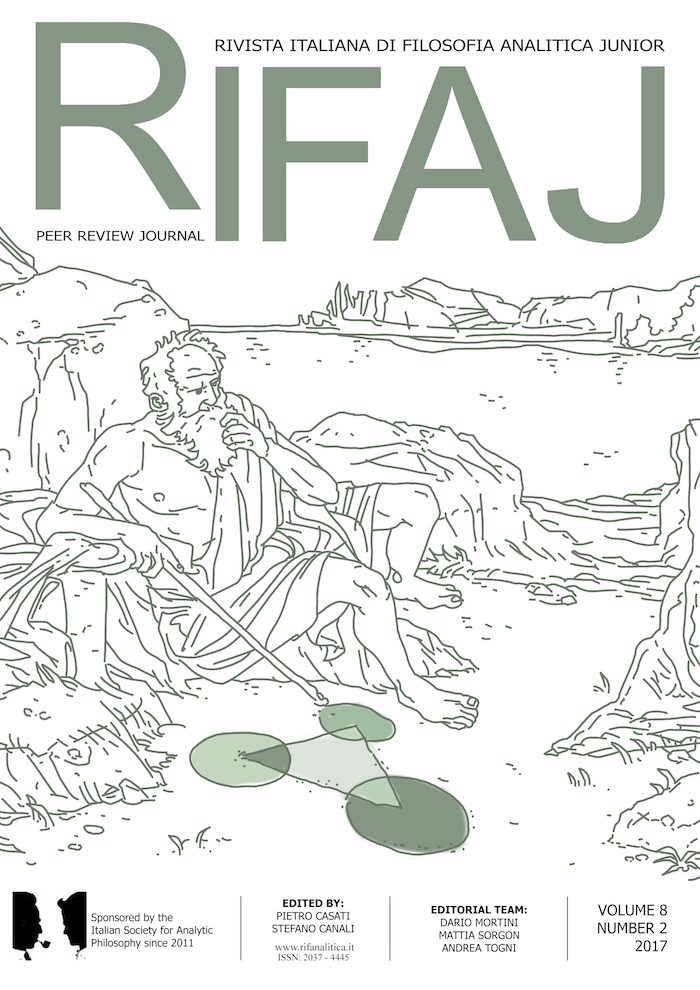Dennett against Cartesian Materialism: the key role of Clour Phi Phenomenom and Multiple Drafts Theory
DOI:
https://doi.org/10.13130/2037-4445/9400Abstract
In this article a major argument by D. Dennett is analysed in order to provide an ultimate argumentation against any possible declination of Cartesian Materialism, meant as an effective theoretical paradigm to frame any issue concerning the problem of consciousness. In order to do so, Dennett formulates an alternative explanation of consciousness, which is supposedly more consistent with the available empirical evidences concerning the way the brain works. This is the Multiple Draft Theory, which the philosopher supports by adopting the colour phi phenomenon, a widely known perceptual illusion, as a major supporting evidence. This phenomenon is extremely relevant to Dennett as it challenges a common intuition about conscious experiences, notably instantiated within the Cartesian Theatre Paradigm both in its materialistic and dualistic version, namely that the temporal order of conscious experiences reflects the temporal order of the events in the external world that triggered them. The colour phi phenomenon, however, shows that this is not the case, making a reformulation of the basic notions orbiting around the problem of consciousness necessary to be rethought.Downloads
Download data is not yet available.
Downloads
Published
2017-12-28
How to Cite
Scotti, D. (2017). Dennett against Cartesian Materialism: the key role of Clour Phi Phenomenom and Multiple Drafts Theory. Rivista Italiana Di Filosofia Analitica Junior, 8(2), 46–57. https://doi.org/10.13130/2037-4445/9400
Issue
Section
Articles
License
The authors keep the intellectual property for their work, while the journal owns the exclusive rights concerning the first publication of the articles. The journal will also reserve the rights to create an Open Access archive under the Creative Commons License. Articles are published under a Creative Commons By Attribution License.




